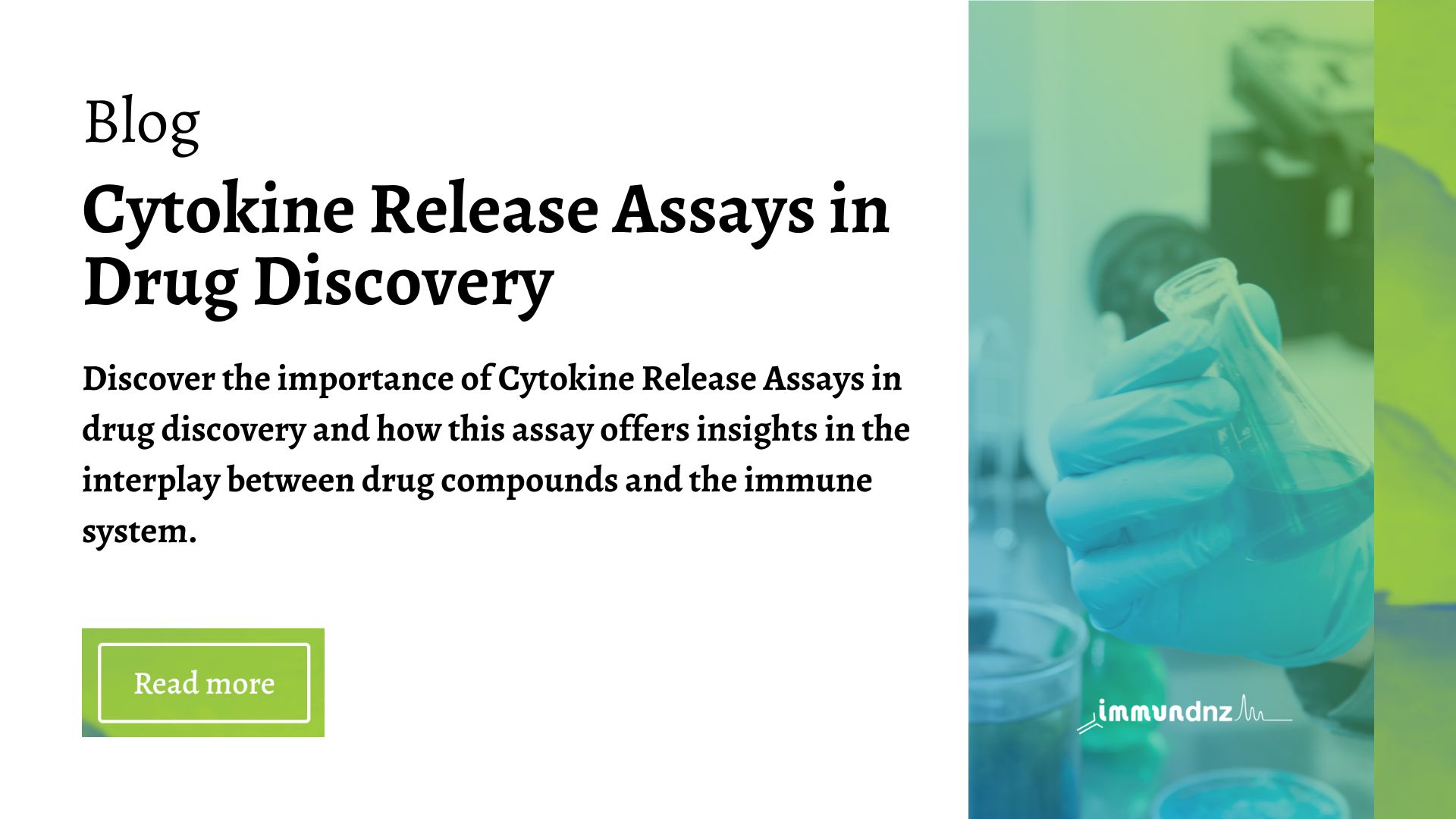In drug discovery, the ability to predict and mitigate adverse immune reactions is paramount. Cytokine release assays (CRAs) have emerged as indispensable tools in this endeavor, offering insights into the complex interplay between drug compounds and the immune system. We will explore here the significance of CRAs in drug development, highlighting their pivotal role in assessing immunotoxicity, optimizing therapeutic strategies, and advancing the field of precision medicine.
Understanding Cytokine Release
Cytokines serve as key mediators of immune responses, orchestrating cellular communication and immune regulation. Upon encountering foreign antigens or stimuli, immune cells release cytokines such as interleukins, interferons, and tumor necrosis factors, triggering a cascade of immune reactions. However, dysregulated cytokine release can lead to cytokine storm, a severe immune reaction characterized by excessive inflammation and tissue damage, which poses significant challenges in drug development.
Assessing Immunotoxicity
One of the primary applications of cytokine release assays in drug discovery is the evaluation of immunotoxicity, wherein potential drug candidates are screened for their propensity to induce cytokine release and elicit adverse immune reactions. By exposing immune cells to test compounds ex vivo and measuring cytokine levels in the supernatant, CRAs provide valuable insights into the immunomodulatory effects of drugs and help identify candidates with an acceptable safety profile. Moreover, CRAs enable the detection of cytokine storm-associated risks early in the drug development process, thereby guiding informed decision-making and mitigating potential safety concerns.
Optimising Biologic Therapies
Biologic therapies, including monoclonal antibodies, cytokine inhibitors, and cell-based therapies, have revolutionized the treatment of various diseases, ranging from cancer and autoimmune disorders to infectious diseases. However, the immunogenicity of biologics remains a significant concern, as the immune system may recognize these therapeutic agents as foreign antigens and mount immune responses, leading to treatment failure or adverse reactions. CRAs play a crucial role in assessing the immunogenic potential of biologic drugs by evaluating cytokine release upon exposure to immune cells derived from treated patients. This enables clinicians to optimize treatment regimens, monitor patient responses, and minimize the risk of immunogenicity-related adverse events.
Advancing Personalised Medicine
The era of precision medicine heralds a paradigm shift in drug discovery and healthcare, with a focus on tailoring therapeutic interventions to individual patients based on their unique genetic makeup, immune profile, and disease characteristics. CRAs contribute to this vision by providing insights into patient-specific immune responses and guiding personalized treatment strategies. By incorporating CRAs into clinical trials and patient monitoring protocols, clinicians can identify individuals who are predisposed to cytokine-mediated adverse events, adjust treatment doses or regimens accordingly, and optimize therapeutic outcomes.
Exploring Novel Therapeutic Targets
CRAs also serve as valuable tools in elucidating the mechanisms of immune activation and identifying novel therapeutic targets for immune-mediated diseases. By screening libraries of small molecules, biologics, or natural compounds using CRAs, researchers can identify compounds that modulate cytokine release and immune responses, offering new avenues for drug discovery. Moreover, CRAs enable the assessment of drug combinations and synergistic effects on cytokine signaling pathways, facilitating the development of more effective and targeted therapies for complex diseases.
Challenges and Future Directions
While CRAs have revolutionized drug discovery and safety assessment, several challenges remain to be addressed. Standardization of assay protocols, validation of biomarkers, and interpretation of complex cytokine profiles are essential for ensuring the reliability and reproducibility of CRAs. Moreover, advancements in high-throughput technologies, microfluidics, and multiplex cytokine detection platforms hold promise for enhancing the sensitivity, specificity, and throughput of CRAs, enabling comprehensive profiling of immune responses in diverse therapeutic contexts.
Conclusion
Cytokine release assays occupy a central position in the arsenal of tools available to researchers and clinicians in drug discovery and development. By providing insights into the immunomodulatory effects of drugs, assessing immunotoxicity, optimizing biologic therapies, and advancing personalized medicine, CRAs contribute to safer, more effective, and patient-tailored therapeutic interventions. As we continue to unravel the complexities of immune regulation and drug-immune interactions, CRAs will undoubtedly remain indispensable in shaping the future of drug discovery and precision medicine.


